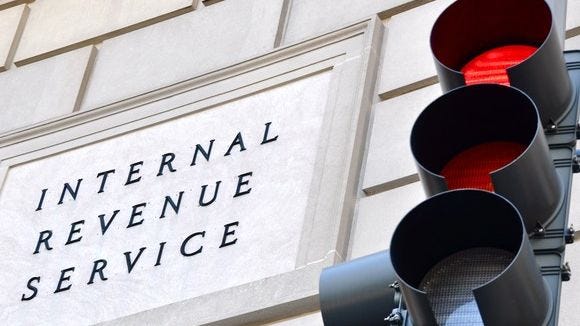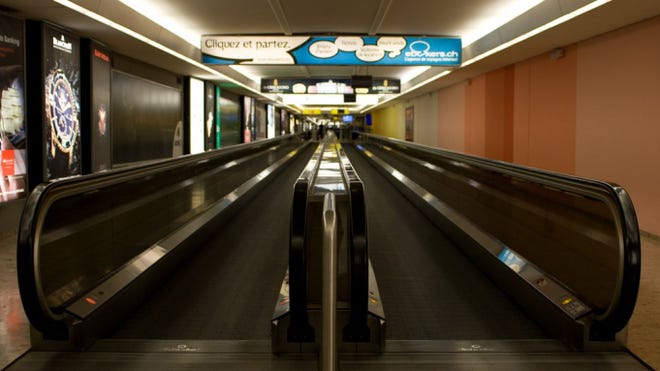IRS’s antiquated technology could delay delivery of $1,200 coronavirus stimulus checks, experts warn – USA TODAY
WASHINGTON – Treasury Secretary Steven Mnuchin is promising that millions of Americans will receive $1,200 stimulus checks in just two weeks, but some tax experts and congressional officials are warning it may take much longer.
Antiquated technology and staff reductions at the Internal Revenue Service have seriously hampered the agency’s ability to process checks in such a short period and could mean delays in sending the money to anxious Americans who are counting on the cash to get them through hard times caused by the coronavirus pandemic, experts say.
“There are going to be a lot of people for whom this is going to take a while, and I think it’s going to be measured in terms of months, not weeks,” said Howard Gleckman, a senior fellow at the Urban Institute’s Tax Policy Center.
The checks are coming:Mnuchin promises stimulus checks for many in 2 weeks after Democrats warn it could be months

Mnuchin dismissed such concerns at a White House news conference on Thursday, telling reporters the IRS will begin sending the money to many Americans via direct deposit in just two weeks. Checks will be mailed to Americans who haven’t provided their bank account information to the IRS.
“I don’t know where you’re hearing these things,” Mnuchin said of possible delays. “This money does people no good if it shows up in four months, and we will deliver on that promise (of two weeks).”
The checks are part of a $2.2 trillion economic recovery package that President Donald Trump signed into law last week to provide a quick cash infusion to Americans hurt financially by the coronavirus crisis. The recovery package also includes loans, grants and tax breaks for businesses also reeling from the economic fallout caused by the pandemic.
But the Trump administration’s quick timeline for getting the stimulus checks into the hands of Americans is once again calling attention to aging technology and other problems that have shadowed the IRS for years – problems that will pose a serious challenge for the agency as it scrambles to meet the check delivery deadline.
The Treasury Department insists that 50 million to 70 million Americans will get their payments via direct deposit by April 15 and that most of those who are eligible will get their checks within three weeks. Americans whose bank account information is not currently in the government’s system may have to wait longer, Treasury says.
But a memo distributed by House Democrats on Thursday warned some Americans could have to wait up to 20 weeks – or five months – before they receive their checks.
“I don’t want to underestimate what the IRS can do,” said Nina Olson, a former taxpayer advocate at the IRS. “I think it’s under enormous pressure to get those checks out as quickly as possible.”
The IRS will probably be able to get some checks out in three or four weeks, said Olson, who now serves as executive director of the nonprofit Center for Taxpayer Rights. “But I don’t think everybody should expect their check in that time,” she said. “And it will take a period of time to get a bunch of those checks out.”
Adding to the IRS’s pressures are staffing issues – the agency’s workforce has shrunken by 20 percent over the past decade – and limitations caused by its aging tax-processing apparatus.
IRS’s information technology systems are among the oldest in the federal government. Two of its database systems – one master file that holds the record of all taxpayers and another that contains records of business tax accounts – date back to the 1960s.
Olson and others have warned for years that the IRS doesn’t have the technology it needs to do its job. The agency has tried to patch the problems by layering smaller systems and applications onto its older systems, but that has often created new glitches since not all of the computer programs are able talk to each other.
“The IRS has erected a 50-story office building on top of a creaky, 60-year-old foundation, and it is adding a few more floors every year,” Olson wrote in her taxpayer advocate report to Congress last year. “There are inherent limitations on the functionality of a 60-year-old infrastructure, and at some point, the entire edifice is likely to collapse.”
Change of heart:Treasury backs off requirement that Social Security recipients take extra step to get $1,200 checks
A dramatic example of the system’s limitations happened two years ago, when IRS computers became overwhelmed and crashed as millions of Americans tried to file their returns and make payments on Tax Day. The agency was forced to give taxpayers an additional day to file and pay their taxes.
To help process the stimulus checks, the IRS said it will create a web-based portal so that Americans who haven’t already provided their direct deposit information to the government can do so online. But Gleckman questioned how quickly the agency would be able to get such a portal up and running.
The IRS did not respond to questions about whether it is building the portal or hiring a contractor to do the work. But, “If they are going to try to build it, there is now way they can build this thing in a week,” Gleckman said.
Many taxpayers didn’t see a check for months when the government authorized stimulus rebates during the Great Recession in 2008. Back then, only 60 percent of taxpayers filed their returns electronically. Nearly 90 percent of all taxpayers file their tax returns electronically today, which should make it easier for the IRS to deliver their checks, Gleckman said.
But when it comes to paper checks, the IRS is limited in the number it can process in any given week, said Garrett Watson, an economist at the nonprofit Tax Foundation.
“This is partly due to out-of-date technology,” Watson said, “but is also driven by the fact that the IRS doesn’t have a smooth process to quickly send out tens of millions of rebates in only a handful of weeks.”
Olson said taxpayers deserve a more detailed explanation of when they can expect the checks.
“I worry the IRS is not going to be allowed to say that because the administration wants people to have some hope that the check is in the mail, even if it isn’t,” she said.
Michael Collins covers the White House. Reach him on Twitter @mcollinsNEWS.
Who is eligible?:Coronavirus stimulus package: Who will get $1,200 checks and when will they be sent out?







